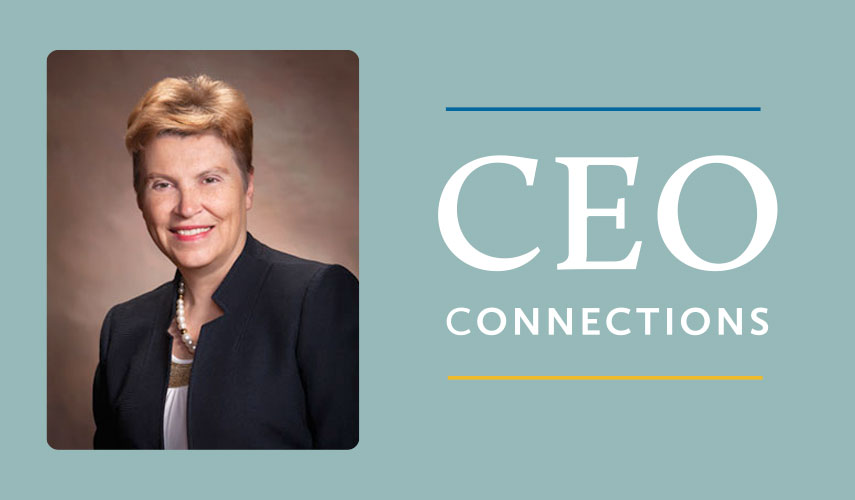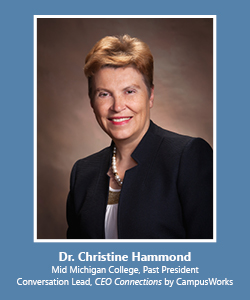
CEO Connections
Reflections & Resolutions
By Dr. Christine Hammond
Poets refer to this mid-winter season as the Turning of the Year. Of course, we flip a page or screen on the calendar, but it seems to me that there is something more primal at work. We turn from winter darkness to ever-increasing daylight; the land turning from dormancy to fertile fields. It is a season for reflection and renewal. Many of us share the usual tactical resolutions—fewer calories, more exercise, deeper meditation, greater kindness…
As I age, I find myself reflecting on, pondering, some other lessons and I recall a short conference paper I read while a grad assistant, “Making Mistakes: Error and Learning in the College Presidency” (Neumann, 1988). In this short study, Neumann talked with 32 college presidents dispersed geographically as well as in age and in presidential experience. She asked them to describe their biggest mistakes. All but one could identify a significant mistake they had made and the negative feedback that had followed. Most presidents said that their most egregious mistakes happened early in their tenure. They reported that building up a store of knowledge, particularly regarding their relationships with others at the College, was valuable learning that diminished mistakes in future years. Related research suggests that early presidents may be stronger learners while experienced presidents might be stronger knowers.
I happened on the article while clearing some files recently and reflected on my own mistakes – on their pattern and structure.
The mistakes of the presidents in Neumann’s study fell into four clusters: errors of omission and three versions of errors of commission.
- Errors of Omission – not taking an action when it was required or would have been beneficial – was the largest single error category.
- Errors of Commission included:
- Acting when non-action would have been prudent;
- Taking the wrong action; or
- Taking the right action but with the wrong implementation strategy. In this last category, the decision may have been correct but with significant flaws in content or process.
I confess that I have sampled each of these categories! What about you?
What can we learn from reflecting with greater scrutiny on the kinds of mistakes we make as leaders? John Dewey once said, “We do not learn from experience … We learn from reflecting on experience.” In examining and understanding the nature and structure of our mistakes, can we avoid them in the future?
The year 2020 gave us plenty of practice in decision-making and, speaking for myself at least, in mistake-making as well. A veteran president once said to me, “You should stay at a place long enough to live with your own mistakes.” I have done so but it has not been easy. As we turn the corner to greet the year ahead, can the errors and experiences of 2020 give us strength, wisdom, and greater success?
Connect with Dr. Hammond on her LinkedIn.


